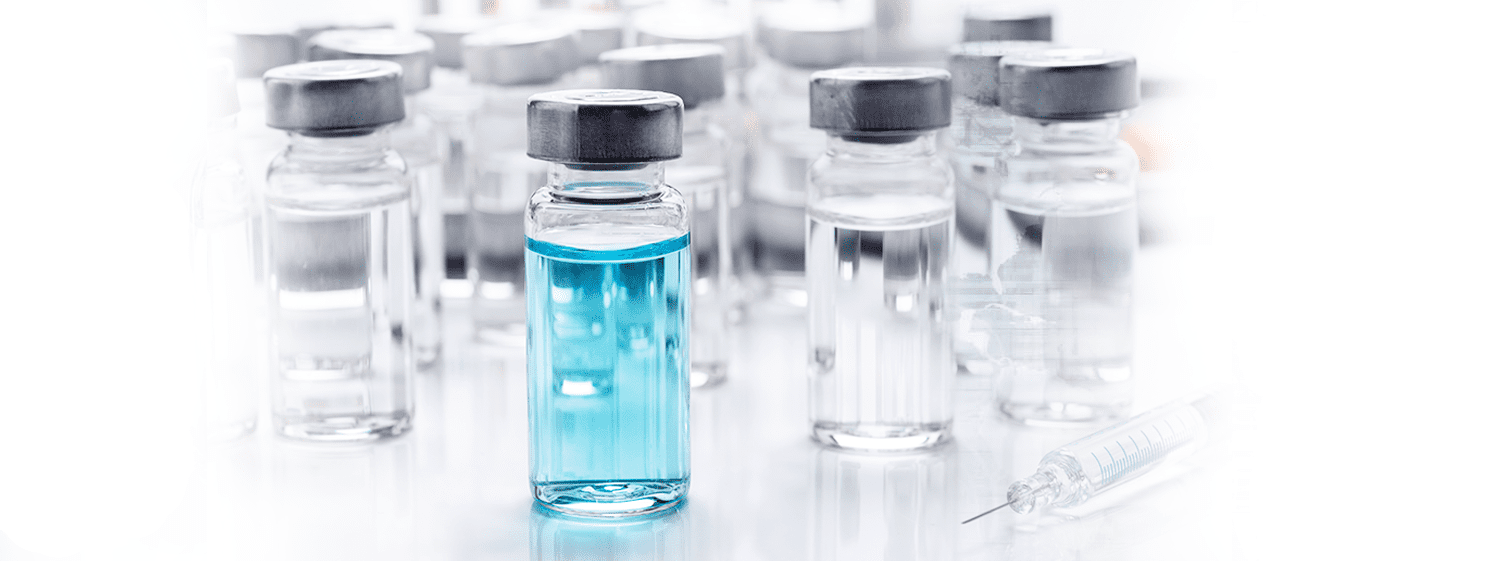Developing an Effective Lyophilization Cycle
Developing an Effective Lyophilization Cycle
By: Peng Zhang, Ph.D., MD, Principal Scientist

Freeze drying is a process to remove water, also known as lyophilization. This technology works by freezing the solution, then reducing the pressure and increasing the temperature to allow the frozen water to sublimate from the product. By changing solution into the solid form, the shelf life can be dramatically extended in certain scenarios, and much more convenient to be transported and stored.
This typical process shines a light on the challenges of medication developments, especially for those products containing API (active pharmaceutical ingredient), which is unstable in solution or with short stability, etc.
Freezing and Sublimation (primary drying) are the two critical phases in the process. Successful lyophilization cycles are able to maintain the CQAs (Critical Quality Attributes) of the products with minimum time and energy consuming.
The optimization of lyophilization process provides critical and scalable synergies between the research work in development lab and the product manufacturing on GMP operation line, ensuring project outcomes are high quality, repeatable, and on time. A contract manufacturing and development organization (CDMO) that specializes in lyophilization relies on freeze drying systems to:
De-risk the product development process by conducting experiments at an R&D scale using lyophilizer technology using a trial-and-error or QbD (quality-by-design) approach.
Understand the thermal and physical characteristics during the development of the lyophilization cycle or when optimizing a known lyophilization cycle. This is essential as no two products are alike. The process is product specific.
Study the thermal characteristics of the product and processes, with a particular focus on CPPs (critical process parameters), such as temperature and timing for freezing, annealing, primary drying, and secondary drying; pressure for primary drying, etc. This also helps to bridge the product's physical properties through the use of DSC (modulated Differential Scanning Calorimetry) and SEM (Scanning Electron Microscopy), such as glass transition temperature (Tg’), Crystallization temperature (Tc), and Eutectic Melt temperature (Te) in DSC, and critical temperature in Freeze drying SEM.
Evaluate chemical and stability characteristics, focusing on reconstitution time, moisture content, assay, degradation products or impurities among other critical quality attributes.
Verify parameters that were established during development, focusing on scalability during GMP manufacturing.
Aseptically fill into washed and depyrogenated vials, half stopper, and load them into the lyophilizer.
Cap and visually inspect lyophilized vials to evaluate cosmetic and critical defects. Vials that successfully pass inspection will proceed to the next stages, including analytical testing.
Lyophilization cycles can last from hours to several days. To ensure a robust cycle and design space that delivers product with acceptable quality profile in the most cost efficient manner, is most critical.
Talk to a Pii Scientist
ABOUT Pii
Pharmaceutics International, Inc. (Pii) is a US-based contract development and manufacturing organization (CDMO) located in Hunt Valley, Maryland. The experienced scientists, engineers, and staff at Pii pride themselves on adroitly employing a phase appropriate method of drug development for the prudent use of their customer’s resources as they solve challenging problems. In addition to offering end-to-end development services, Pii manufactures a variety of dosage forms to include complex parenteral drugs and has a wealth of analytical testing capabilities. Its Hunt Valley campus has four aseptic suites with lyophilization capabilities. Our talented professionals stand ready to help!
ABOUT THE AUTHOR
Peng Zhang, Ph.D., MD
Principal Scientist
Peng Zhang is a Principal Formulation Scientist, Aseptic Research & Development at Pharmaceutical International, Inc. (PII), serving at the company since 2011. She received her PhD in Chemistry and Biochemistry from the University of Maryland, Baltimore County (UMBC) and MD from Beijing Medical University. Dr. Zhang has led the R&D activities for aseptic products since 2019, including early formulation development, process development, technology transfer, and submission support of IND, NDA, and ANDA, etc. Dr. Zhang is also an expert in analytical method development and validation. She has participated in 50-plus ANDA fillings of different dosage forms and several approved genetic drug launches. She has strong research experience and broad background in drug discovery, especially in anticancer, antivirus and addiction treatments.